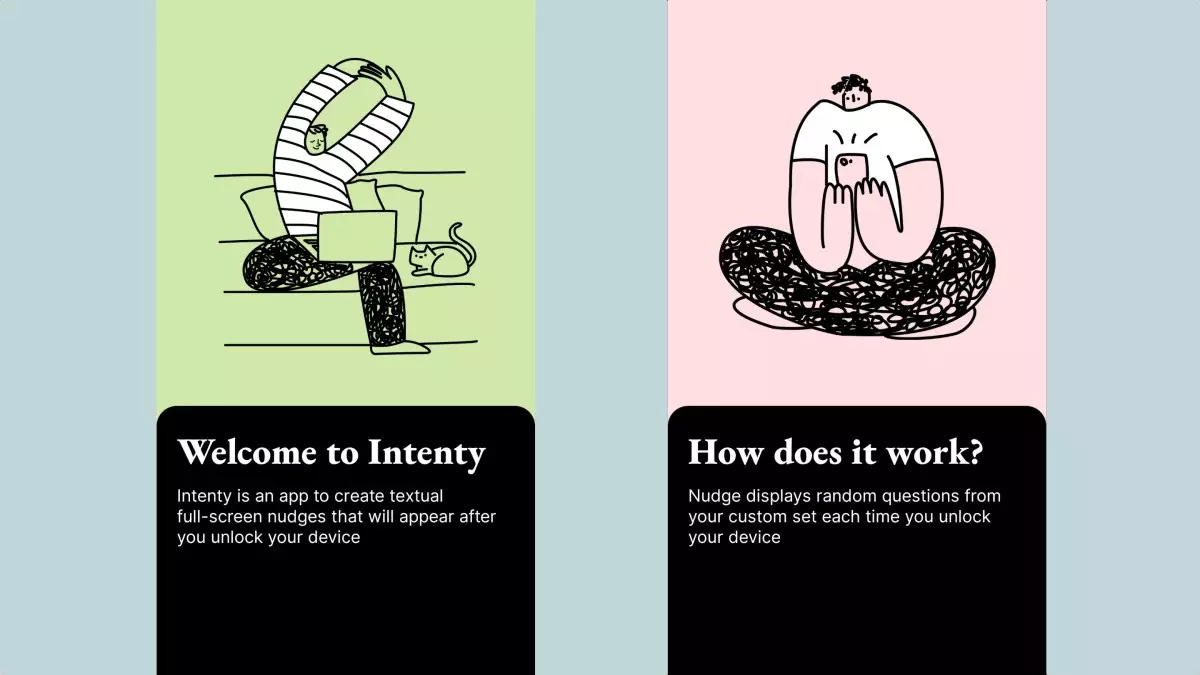In an era dominated by smartphones, the struggle to cultivate intentional device usage is increasingly prevalent. While technological advancements have introduced various features aimed at moderating our screen time, many of us still find ourselves operating on autopilot, habitually unlocking our phones without a clear purpose. This behavior is not merely a minor inconvenience; it is symptomatic of a larger issue regarding how modern technology interacts with our daily lives.
The design of operating systems like iOS and Android has indeed integrated timers and usage controls, yet these tools often fall short of their intended goals. One glaring issue is that they tend to promote a reactive rather than a proactive approach to phone usage. Users find themselves constantly engaging with social media, email, and news feeds, leading to distraction rather than focus. This cycle creates a dependency characterized by mindless scrolling, where the act of unlocking the phone becomes a habitual reflex devoid of meaningful intent.
Ukrainian developer Yaroslav Neznaradko recognized this common plight back in 2019. After grappling with his excessive phone usage, which left him feeling overwhelmed rather than productive, he sought an innovative solution. His frustration with existing tools—such as screen time limits and app blockers—sparked an idea: What if users had to consciously articulate their intentions before unlocking their devices? This epiphany laid the groundwork for the development of Intenty, a mindfulness-focused application designed to nudge users into greater awareness.
From Concept to Creation: The Evolution of Intenty
Initially launched in 2020, Intenty offered a simplistic approach by prompting users with a single inquiry about their purpose for unlocking their phones. However, limitations in its early design meant that it struggled to engage users effectively. Neznaradko’s quest for improvement stalled until 2023, when he revisited the app’s potential, particularly after witnessing innovations like ChatGPT. This led him to introduce a chat-styled interface aimed at assessing user intentions at the moment of phone access—yet the response was lukewarm.
After conducting in-depth research into human-computer interaction, Neznaradko ushered in a redesigned version of Intenty in the summer of 2023. This iteration allowed users to tailor their nudges around various themes such as Intention, Necessity, and Grounding, significantly enriching user experience. By enabling customization, users no longer felt a one-size-fits-all approach was being imposed upon them. Moreover, the introduction of a “cooldown” feature provided a necessary balance, allowing quick access during moments when immediate action like capturing a photo was needed.
Beyond offering nudges, Intenty also tracks user engagement over time, allowing individuals to reflect on their phone usage patterns. This element of self-awareness creates an opportunity for users to evaluate their digital habits critically. The app’s free version serves as an introductory tool, but it also includes a premium option at $1.99 per month, which unlocks advanced features like scheduling nudges and a “hard mode” that mandates reasons for usage.
As the app has gathered user feedback—especially following a recent post by Neznaradko on Hacker News—one of the core challenges has emerged: how to fine-tune nudges so they assist rather than annoy the user. Balancing effective nudges with a user’s desire for quick access creates a complex layer of interaction design that Neznaradko is eager to address.
Sustaining user engagement without creating nudge fatigue is a goal that Neznaradko acknowledges will require ongoing innovation. He envisions enhancements that include refining the nudge process based on user fatigue and introducing multimedia nudges like images or videos, potentially increasing their impact. These advancements signal a commitment to adapting the tool not just to become a mere task manager but a partner in the continual effort to enhance mindfulness in our digital engagements.
The development of Intenty encapsulates a growing awareness of the need for intentional technology use. As we navigate a world saturated with distractions, applications like Intenty can play a crucial role in helping users exert control over their digital habits. By fostering a culture of mindfulness, individuals can reclaim agency over their screens, promoting a healthier relationship with technology. The challenge remains, however, in refining these tools so they fit seamlessly into our routines without becoming just another source of annoyance.

